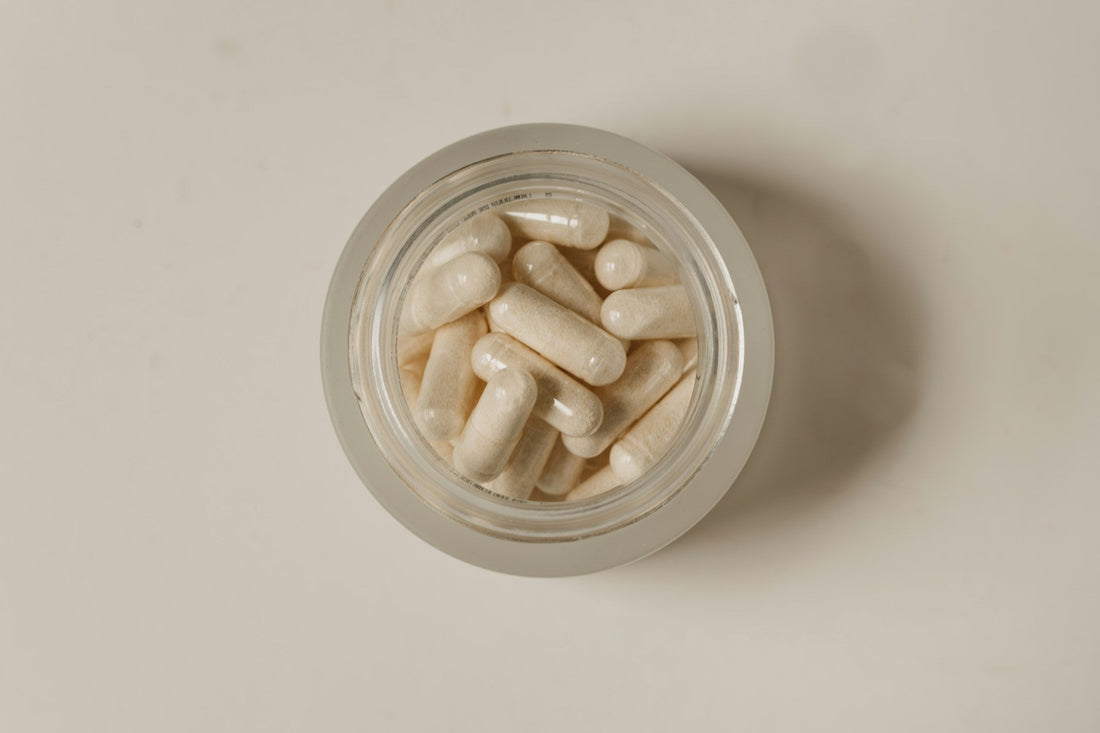
What to Do About Painful External Hemorrhoids: Effective Relief Strategies and Treatment Options
Share
Experiencing painful external hemorrhoids can be uncomfortable and distressing, often affecting your daily activities. To alleviate this pain, you can start by making simple lifestyle adjustments, along with utilizing effective supplements designed for optimal relief. Many find that increasing fiber intake and staying hydrated can help ease symptoms and promote regular bowel movements, reducing strain and discomfort.
In addition to these lifestyle changes, consider incorporating Hem Healer into your routine. This 100% natural blend of botanical herbs is formulated to target pain, swelling, and bleeding associated with hemorrhoids. It's specifically designed to address the needs of both men and women, providing a holistic approach to managing your symptoms effectively.
While external hemorrhoids may seem daunting, understanding your options for pain relief can empower you to take control of your health. By exploring natural remedies like Hem Healer, along with dietary modifications, you can significantly improve your comfort and quality of life.
Understanding Hemorrhoids
Hemorrhoids are swollen veins in the lower rectum and anus that can cause discomfort and pain. Recognizing the types, symptoms, and potential complications of hemorrhoids is essential for effective management and treatment.
Types and Differences
There are two main types of hemorrhoids: internal and external. Internal hemorrhoids, located inside the rectum, typically do not cause pain unless they prolapse outside, resulting in a prolapsed hemorrhoid. These can lead to rectal bleeding, often noticeable during bowel movements.
External hemorrhoids develop under the skin around the anus. They may cause significant discomfort, especially if a blood clot forms, leading to a thrombosed hemorrhoid. This type becomes swollen and tender, requiring more immediate attention.
Understanding these distinctions helps you determine the appropriate course of action for treatment.
Common Symptoms
Symptoms vary based on hemorrhoid type. Common indicators for external hemorrhoids include itching, swelling, and painful lumps around the anus. You might also experience bleeding, which often appears bright red on toilet paper or in the toilet bowl.
For internal hemorrhoids, symptoms may include discomfort during bowel movement and potential prolapse, where they protrude from the anal canal. If you notice significant or persistent rectal bleeding, it's vital to consult a healthcare professional to rule out other conditions.
Recognizing these symptoms early can lead to more effective management strategies.
Potential Complications
If untreated, hemorrhoids can lead to complications such as strangulated hemorrhoids, where the blood supply is cut off, causing severe pain and requiring surgical intervention. Another risk involves the development of a thrombosed hemorrhoid, which can become very painful and may necessitate procedures to alleviate the discomfort.
Persistent symptoms should not be ignored, as they may indicate a more serious underlying condition. For managing and reducing the severity of hemorrhoids effectively, consider options like Hem Healer. This 100% natural blend of botanical herbs is designed for both men and women, providing relief from pain, swelling, and bleeding associated with hemorrhoids.
Factors Contributing to Hemorrhoid Development
Several factors can lead to the development of external hemorrhoids. These include dietary choices, lifestyle habits, and certain health conditions. Understanding these factors can help you make informed choices to manage and prevent hemorrhoids.
Dietary Influence
Your diet plays a crucial role in preventing hemorrhoids. Consuming a low-fiber diet can lead to constipation, making bowel movements difficult. Straining during these movements increases the pressure on hemorrhoidal veins, causing them to swell.
Incorporating high-fiber foods, such as fruits, vegetables, and whole grains, can greatly improve your bowel habits. A diet rich in fiber helps maintain soft stools, reducing straining during bowel movements. If you're struggling with dietary changes, consider supplements like Hem Healer, which provides a natural alternative to support your digestive health.
Impact of Lifestyle
Your daily routine can significantly influence hemorrhoid development. Sedentary lifestyles contribute to poor circulation and increased pressure on the rectal area. Regular exercise promotes healthy blood flow and supports regular bowel habits.
Additionally, managing weight is vital. Obesity increases abdominal pressure, exacerbating hemorrhoid symptoms. If you experience chronic constipation or diarrhea, these conditions can also contribute to the formation of hemorrhoids. Implementing lifestyle changes, such as incorporating physical activity and maintaining a healthy weight, will help reduce your risk.
Role of Health Conditions
Certain health conditions can heighten your risk for developing hemorrhoids. Pregnancy is a common factor, as hormonal changes and increased pressure on the pelvic region can lead to swollen veins. Anemia or insufficient blood flow to the area can also contribute to hemorrhoid formation.
Chronic conditions, such as inflammatory bowel disease, can disrupt regular bowel habits, resulting in constipation or diarrhea. Being aware of these health-related factors allows you to take proactive steps in managing your overall gut health. Products like Hem Healer may provide assistance in alleviating pain and discomfort associated with these conditions.
Effective Home Remedies and Non-Surgical Treatment
Finding relief from painful external hemorrhoids can often be achieved through various at-home remedies and non-surgical treatments. These methods focus on reducing pain, inflammation, and discomfort while promoting healing.
Diet and Natural Treatments
Your diet plays a crucial role in preventing and managing hemorrhoids. Increasing fiber intake can help soften your stool and reduce straining during bowel movements. Incorporate foods rich in fiber, such as fruits, vegetables, and whole grains. Fiber supplements can also be beneficial if you're not getting enough from your diet.
Consider adding natural remedies like witch hazel, known for its soothing properties; applying it topically can reduce swelling. A sitz bath can provide significant relief, where you soak your affected area in warm water for about 15-20 minutes. Adding Epsom salts to your bath can enhance its soothing effects.
Over-the-Counter Solutions
Several over-the-counter options exist for managing the discomfort associated with hemorrhoids. Hemorrhoid creams containing hydrocortisone can help alleviate itching and inflammation. You may also find witch hazel wipes convenient for gentle cleansing and soothing.
Using ice packs can reduce swelling and numb pain temporarily. These can be applied for 15-20 minutes several times a day. If you notice blood in the stool, it's crucial to consult a healthcare professional before proceeding with self-treatment.
Minimally Invasive Procedures
For persistent symptoms that do not improve with home remedies, consider minimally invasive procedures. Rubber band ligation involves placing a rubber band around the base of the hemorrhoid, cutting off its blood supply. This method often leads to the hemorrhoid falling off after a few days.
Sclerotherapy is another effective option, where a chemical solution is injected to shrivel the hemorrhoid. Both procedures can be performed in a doctor's office and are associated with minimal recovery time.
Incorporating Hem Healer into your routine can also support overall healing. Our natural herbal blend is designed to reduce the pain and severity of hemorrhoids effectively for both men and women.
When to Seek Medical Attention
Recognizing when to seek medical attention for painful external hemorrhoids is crucial to prevent complications. Specific symptoms and diagnostic methods are key in determining the need for professional care.
Signs and Tests
You should seek medical attention if you experience bleeding during bowel movements, as it can indicate severe hemorrhoids or other conditions. Accompanying symptoms such as intense pain, swelling, or the presence of hard lumps suggest possible thrombosed hemorrhoids.
Tests may include a digital rectal exam to assess the area. If there’s excessive bleeding or signs of blood clots, further examinations may be necessary, such as a colonoscopy. This is essential to rule out conditions like colorectal cancer. Chemical tests to check for coagulation may also be performed to evaluate any underlying issues.
Professional Treatments
If home remedies aren’t effective, you might consider visiting a specialist such as a gastroenterologist or a colon and rectal surgeon. Treatment options can range from non-invasive methods to surgical interventions. For severe cases, procedures like hemorrhoidectomy or hemorrhoidopexy may be needed.
Medications such as acetaminophen or ibuprofen can provide temporary relief. Botulinum toxin injections might be used for pain relief. Always consult a healthcare provider for a personalized treatment plan. Hem Healer supplements can support your recovery by reducing pain, swelling, and bleeding, as they are made from a natural blend of botanical herbs designed for effectiveness in managing hemorrhoids.
Long-Term Management and Prevention
Managing painful external hemorrhoids requires a commitment to healthy lifestyle choices and regular check-ups. By focusing on diet, physical activity, and screening, you can significantly reduce discomfort and prevent future flare-ups.
Adopting Healthy Habits
A nutritious diet plays a crucial role in preventing hemorrhoids. Incorporate high-fiber foods, such as fruits, vegetables, and whole grains, into your meals. These foods help soften stool, reducing straining during bowel movements, which is a key trigger for hemorrhoid pain.
Staying hydrated is equally important; aim for at least eight glasses of water daily. Regular physical activity also helps maintain bowel regularity. Activities like walking or pelvic floor exercises can strengthen abdominal muscles and promote healthy digestion.
Consider using Hem Healer, a natural supplement that combines botanical herbs to alleviate pain and swelling. This holistic approach supports your overall well-being and helps manage symptoms effectively.
Regular Medical Checks
Regular visits to your healthcare provider can help monitor hemorrhoid conditions and overall rectal health. Discuss any persistent symptoms, such as bleeding or significant discomfort, as these may indicate more serious conditions like anal cancer.
Your doctor may recommend procedures like hemorrhoid banding if your symptoms do not improve with conservative measures. Early intervention is vital for effective treatment and to prevent complications.
In addition, be proactive about managing pregnancy-related hemorrhoids, as hormonal changes and increased pressure during this time can exacerbate symptoms. Regular check-ups will ensure you receive the best advice tailored to your situation.

